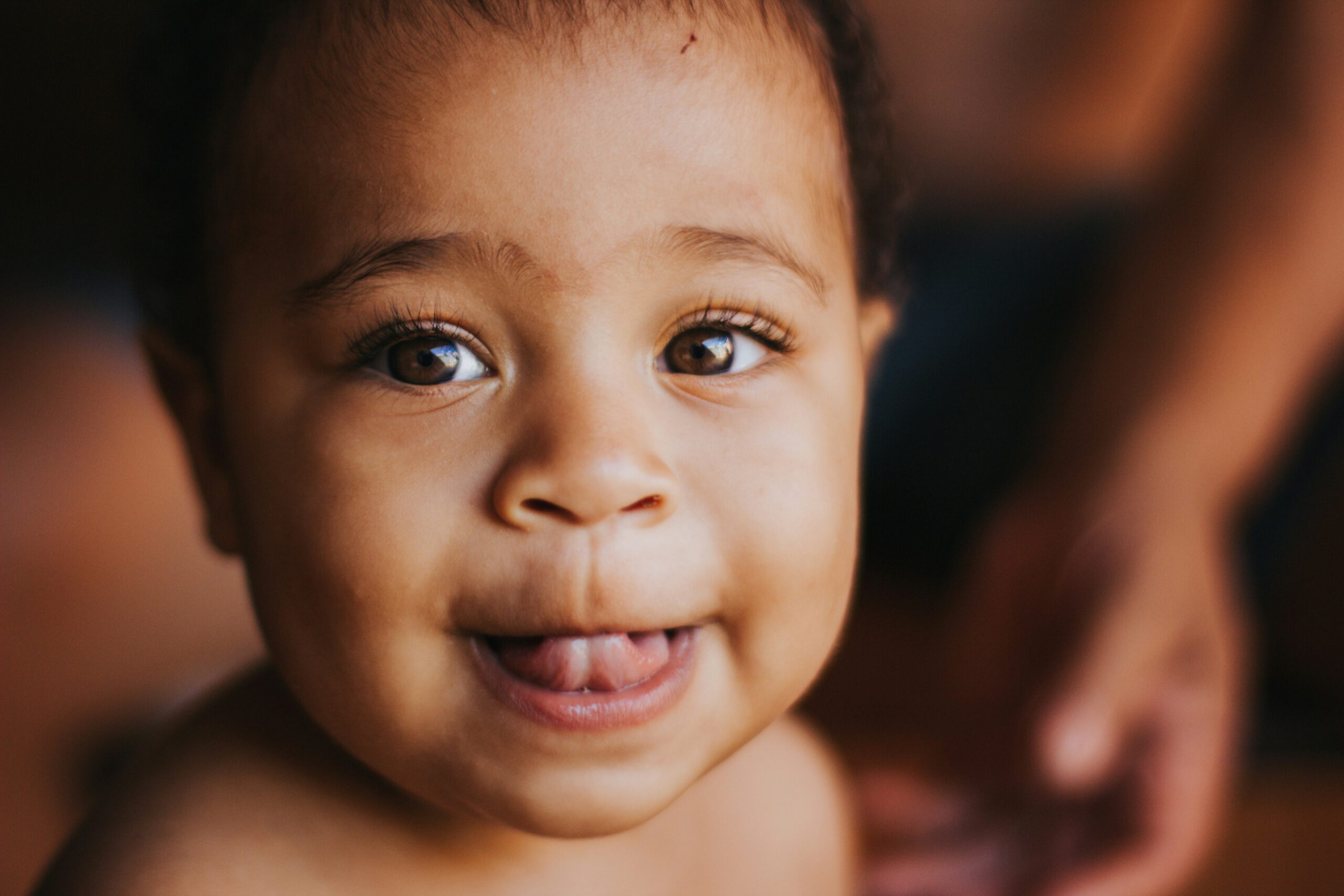Excitement is an understatement for new parents waiting to capture their baby’s first laugh. They are always ready with their phones to record that long-awaited expression ofj oy whenever the baby smiles, and it’s hard not to want to capture such beautiful moments of our kids. Most babies have their first laugh between three to four months; however, one thing to remember is every child hits their milestones at different times. So when do babies start laughing?
A baby’s laughter is a confirmation that their social skills are blossoming. They start by smiling at the end of the second month, indicating that the baby is content, well-bonded and happy. The smiles and cooing grow into laughter as they get to three or four months. The smiles, laughter, and cooing indicate that the baby reacts to positive actions and events happening around them.
Meet the Expert: Dr. Diana Rangaves writes for 21Ninety’s as a health and wellness expert. She is a pharmacist, philanthropist, and ethics professor turned writer, holding a Doctorate in Pharmacy from the University of California. She also serves as the Executive Editor and Chief Content Officer for Healthcare Worldwide Central and has published several works in medical and pharmaceutical publications, academic books, as well as, scholarly articles.
What Influences When My Baby Starts To Laugh?
As babies become more aware of their surroundings, they react to what they feel and see. One of the critical influences of laughter in babies is the social interaction they receive as they grow. When you engage the baby in playful and affectionate interactions, they will likely start laughing sooner.
A second thing that can influence when your baby starts to laugh is their emotional connection with their caregiver. When the baby feels a sense of comfort, security and trust they are bound to have a genuine and happy laugh sooner. You should, however, not compare your baby to others; some will start laughing at three months, while others will start laughing at five months, which is okay.
What Signs Show That My Baby Is Ready To Laugh?
As you eagerly wait for your baby’s first laugh, you may not know whether they are ready. There are signs to look out for to know if your baby is ready for their first laugh. One of the signs you will notice is their physical interactions when they are content, happy and comfortable. They will playfully kick their legs, wriggle excitedly, and wave their arms. If they continue this way and are constantly engaged in play, be sure you will hear a laugh from them sooner.
The second sign is mimicking caregivers’ facial expressions, which is one of the funniest moments you can have with your baby. Babies observe and tend to mimic adults; therefore, try laughing with your little one, and you might be surprised that is the day you get to hear their first laugh.
The third sign that you should expect a laugh soon is if the baby is making cooing sounds as they smile. Another sign is if your baby engages in playful interaction, e.g., peekaboo, it shows they are becoming more aware of their surroundings and will soon start to laugh.
How Do I Make My Baby Laugh?
It is true when they say you are your baby’s first comedian. Why? Because if you want to make your baby laugh, you must try different things to identify what evokes that laugh from your baby. One of the things you can do is playful interactions. Peekaboo leads the list here. Some research suggests that peekaboo is one of the most interactive plays with kids, which makes them laugh.
You could blow raspberries on the baby’s belly, make funny faces and sing. Some other ways to make them laugh include baby rides on a bouncing knee and laughing as you play with them. As silly as it may seem, these interactions help the baby learn laughter and language.
Why Is It Important For My Baby To Laugh?
Laughter is an essential milestone in your baby’s development. It helps develop their cognitive skills, allowing them to learn about the environment, interactions, and feelings. Like an adult, laughter helps promote relaxation and strengthens the bond between the parents and the children. A baby who laughs more is highly unlikely to keep crying. Keep nurturing those smiles and laughter; your baby will be happier and healthier.
As you wait for that first laugh from your baby, it is essential to remember that the environment plays a huge role. Therefore, ensure that the baby is comfortable, and you bond with them. In cases where a caregiver spends a lot of time with the child, always ensure they engage the child more. Include playtime, where the caregiver talks to the child and spends more time interacting and playing with them, reducing screen time.
Remember that every child develops at their own pace. Therefore, a child can start laughing at five or even six months. The most important thing is to engage your doctor during vaccination and routine checks whenever you visit.
They will always check if your baby is doing well and are the best to advise on whether the baby is having delayed milestones. Remember to keep the captured memories for your child when they grow up. Their reactions will melt your heart as they watch their first laugh in this world.
